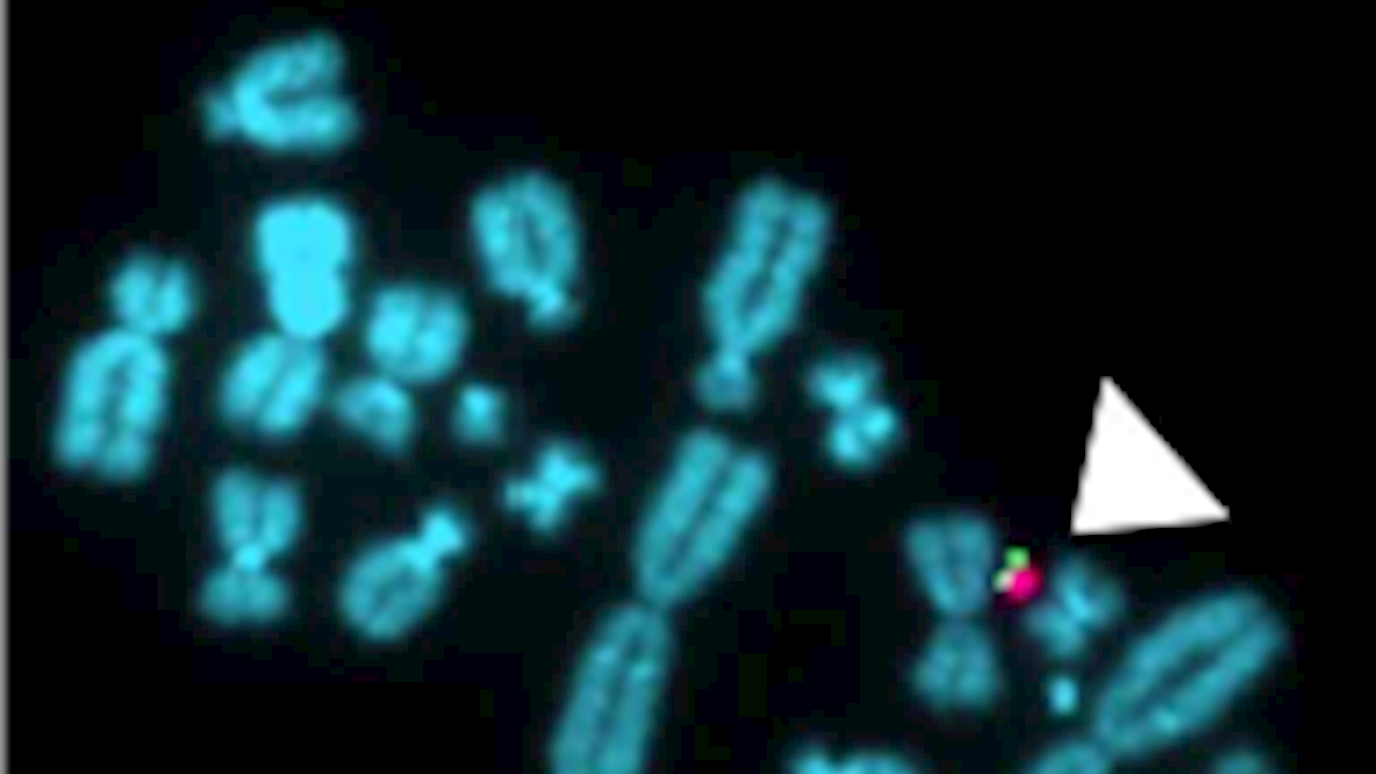Scientists at Royal Holloway, University of London, along with colleagues at UCL, have developed a novel artificial human chromosome which could be used to reverse the genetic defect in muscle stem cells from patients with Duchenne muscular dystrophy (DMD).

Microscopic image of the small artificial human chromosome (white arrowed, red and green element) among other natural chromosomes (blue).
DMD is a very serious X-chromosome-linked inherited disease in young boys which leads to a debilitating and ultimately life-threatening muscle wasting condition for which no good treatments exist. DMD patients are often wheel-chair users by early teens, and generally require respiratory support by the age of 20.
The current study, carried out by Professor George Dickson and Dr Linda Popplewell from the School of Biological Sciences, in collaboration with Dr Saverio Tedesco and colleagues at UCL, focused on the genetic correction of DMD muscle stem cells using gene therapy to develop this novel artificial chromosome system.
The researchers used an entirely man-made chromosome that contains a dystrophin gene, which works as part of a group of proteins to strengthen muscle fibres and protect them from injury and act as an anchor, connecting each muscle cell’s structural framework with the lattice of proteins and other molecules outside the cell.
Professor Dickson said: "These exciting results are a world-first and leading-edge science. Production of an artificial human chromosome containing an intact healthy copy of the gene affected in DMD is a tremendous feat of genetic engineering, and we are very proud to have played our part. This achievement is a first step towards a chromosome transfer therapy for this debilitating illness.”
Find out more about the School of Biological Sciences and the research projects the department is involved with.
























